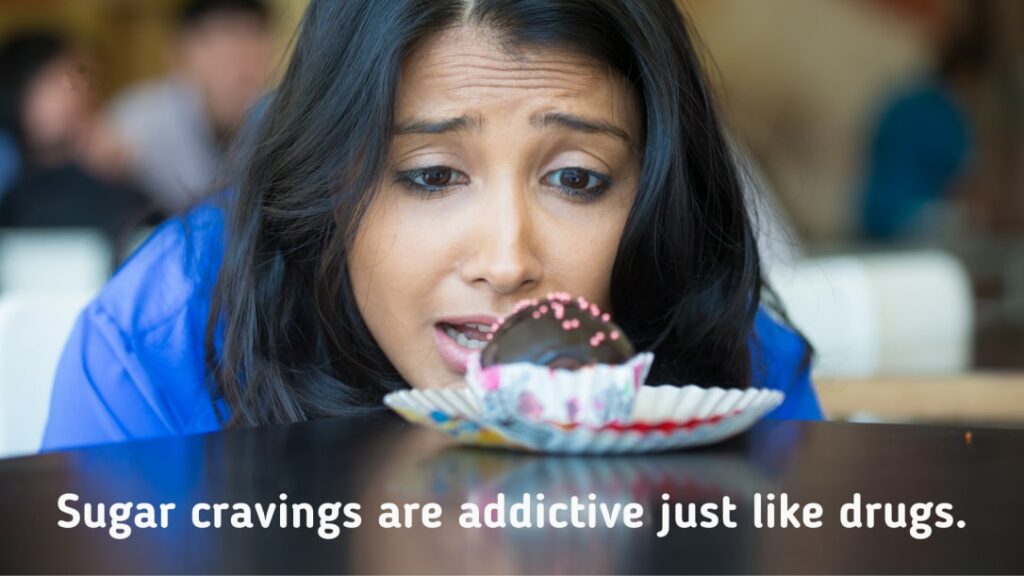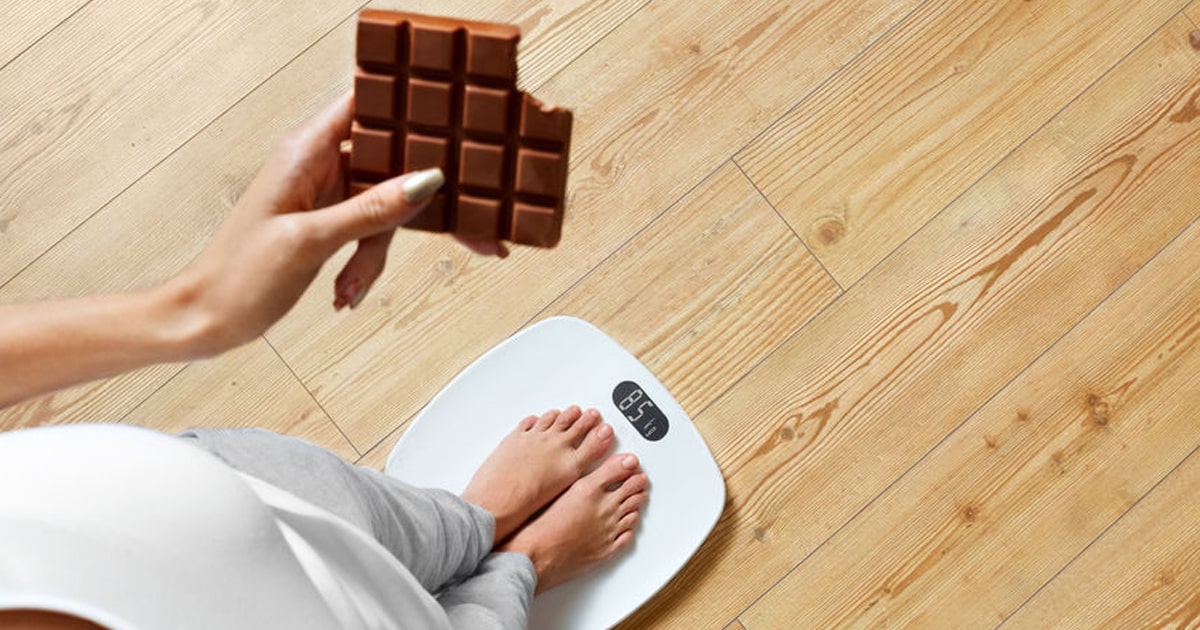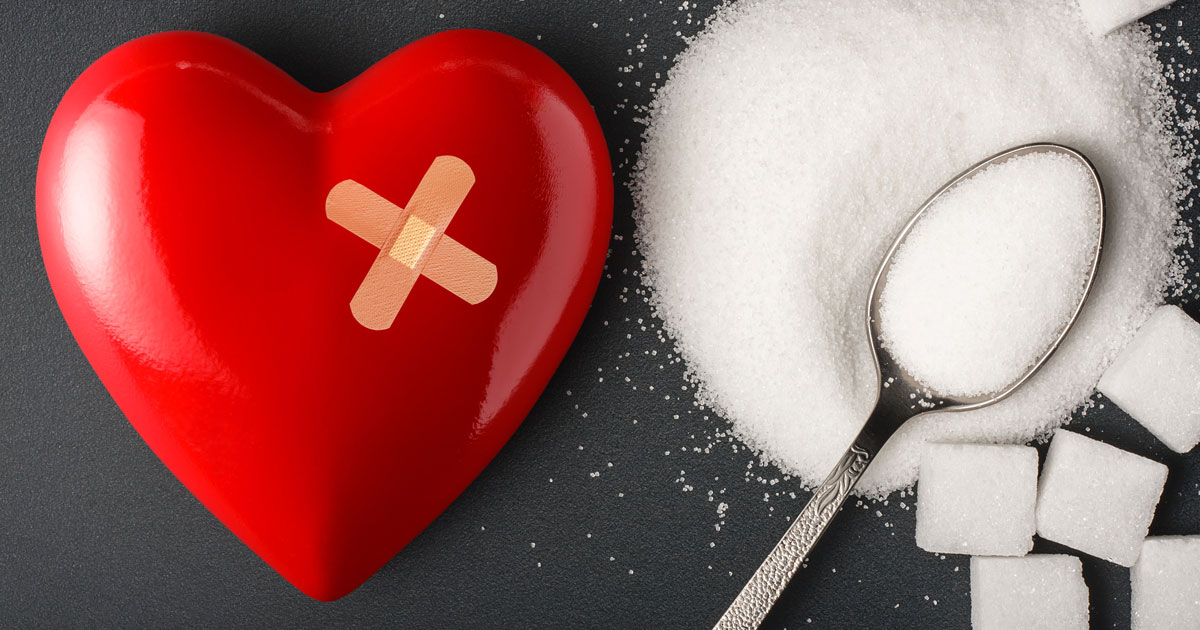The story discusses the potential health issues caused by overconsumption of sugar and provides nine signs that indicate someone is consuming too much sugar.
These signs include muscle pain, craving sweets, energy highs and lows, skin breakouts, weight gain, tooth decay, high sugar tolerance, frequent colds and flu, and feeling bloated.
The story emphasizes the importance of reducing sugar intake to reap the benefits of eliminating inflammation, weight loss, stable mood, clear skin, reduced risk of type 2 diabetes, and sustained energy levels.

To avoid overconsuming sugar, the story suggests gradually making dietary changes such as avoiding sugary beverages and candies, cakes, chocolates, and muffins.
Reading product labels to choose low-sugar options and replacing simple carbs with whole-grain alternatives are also recommended. The story advises against consuming artificial sweeteners due to potential harm to the body.
In conclusion, the story compares sugar addiction to smoking or drug addiction and emphasizes the need to make gradual changes to reduce sugar consumption for better health. It acknowledges that breaking the sugar addiction can be challenging but encourages readers to choose a healthier lifestyle.
It Can Cause Weight Gain
Obesity rates are rising worldwide, and evidence suggests that added sugar — often from sugar-sweetened beverages — is a major contributor to obesity.

Sugar-sweetened drinks like sodas, juices, and sweet teas are loaded with fructose, a type of simple sugar.
Consuming fructose increases your hunger and desire for food more than glucose, the main type of sugar found in starchy foods.
Additionally, animal studies show that excessive fructose consumption may cause resistance to leptin, an important hormone that regulates hunger and tells your body to stop eating.
In other words, sugary beverages don’t curb your hunger, making it easy to quickly consume a high number of liquid calories. This can lead to weight gain.
Research shows that consuming sugary beverages is associated with weight gain and increased risk of type 2 diabetes.
Also, drinking a lot of sugar-sweetened beverages is linked to an increased amount of visceral fat, a kind of deep belly fat associated with conditions like diabetes and heart disease.
May Increase Your Risk of Heart Disease

High-sugar diets have been associated with an increased risk of many diseases, including heart disease, the number one cause of death worldwide.
Evidence suggests that high-sugar diets can lead to obesity and inflammation as well as high triglycerides, blood sugar, and blood pressure levels — all of which are risk factors for heart disease.
Additionally, consuming too much sugar, especially from sugar-sweetened drinks, has been linked to atherosclerosis, a disease characterized by fatty, artery-clogging deposits.
A study in over 25,877 adults found that individuals who consumed more added sugar had a greater risk of developing heart disease and coronary complications compared to individuals who consumed less added sugar.
Not only does increased sugar intake increase cardiovascular risk, but it can also increase risk of stroke.
In the same study, more than eight servings per week of sugar-sweetened beverages were associated with increased stroke risk.
Just one 12-ounce (473-ml) can of soda contains 39 grams of sugar, which equates to 8% of your daily calorie consumption, based on a 2,000-calorie diet.
This means that one sugary drink a day can bring you close to the recommended daily limit for added sugar.
Linked to Acne
A diet high in refined carbs, including sugary foods and drinks, has been associated with a higher risk of developing acne.
Foods with a higher glycemic index, such as processed sweets, raise your blood sugar more rapidly than foods with a lower glycemic index.
Consuming sugary foods can cause a spike in blood sugar and insulin levels, leading to increased androgen secretion, oil production, and inflammation — all of which play a role in acne development.
Evidence has shown that low-glycemic diets are associated with a reduced acne risk, while high-glycemic diets are linked to a higher acne risk.
For example, a study of 24,452 participants found that the consumption of fatty and sugary products, sugary beverages, and milk was associated with current acne in adults.
Additionally, many population studies have shown that rural communities that consume traditional, non-processed foods have much lower rates of acne compared to more urban, high-income areas where processed food is part of a standard diet.
These findings coincide with the theory that diets high in processed, sugar-laden foods contribute to the development of acne.
Increases Your Risk of Type 2 Diabetes
Diabetes is a leading cause of mortality and reduced life expectancy. Its prevalence has more than doubled over the past 30 years, and projections estimate its burden will continue to rise.
Excessive sugar consumption has been historically associated with an increased risk of diabetes.
While no study has proven that sugar consumption causes diabetes, there are strong connections.
Eating large amounts of sugar can indirectly raise diabetes risk by contributing to weight gain and increased body fat — both of which are risks for developing diabetes.
Obesity, which is often caused by excessive sugar consumption, is considered the strongest risk factor for diabetes.
What’s more, prolonged high-sugar consumption drives resistance to insulin, a hormone produced by the pancreas that regulates blood sugar levels.
Insulin resistance causes blood sugar levels to rise and strongly increases your risk of diabetes.
Additionally, research has found that people who drink sugar-sweetened beverages are more likely to develop diabetes.
A study including individuals who drank sugary beverages for over a 4-year period found that increased consumption of sugary beverages — including soft drinks and 100% fruit juice — is associated with a higher risk for type 2 diabetes.




